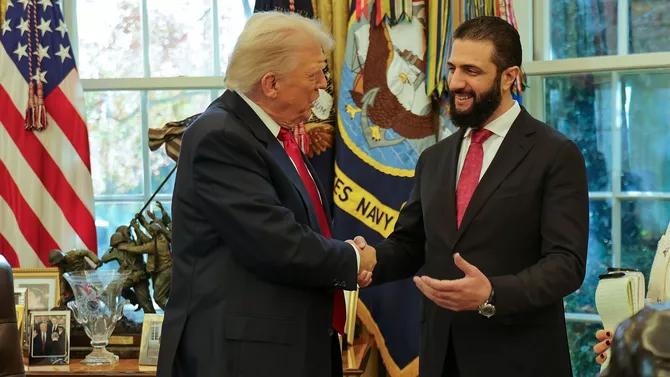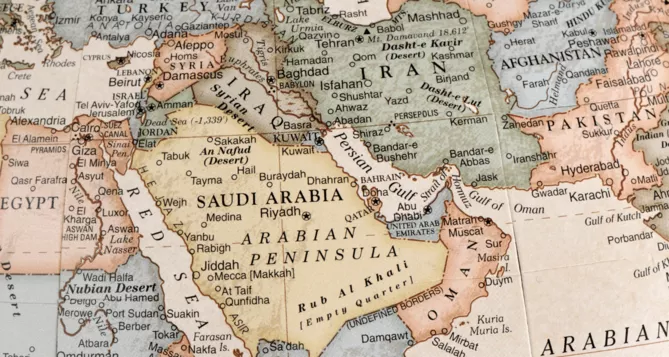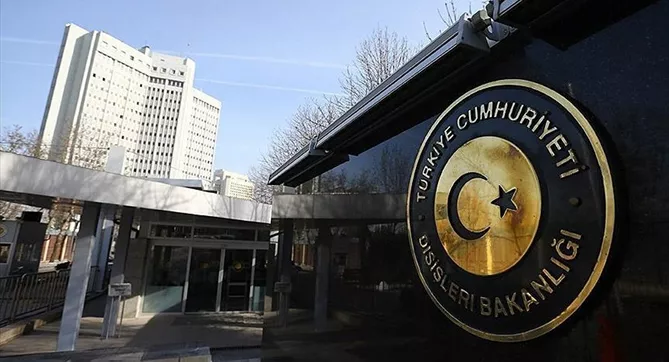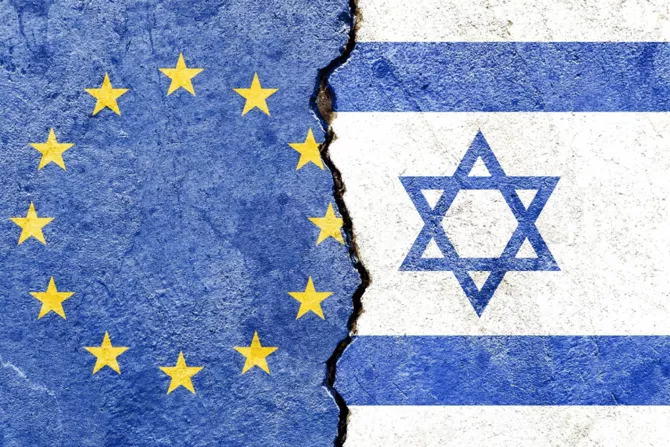
Photo: Turkish expert, political commentator and Dumlupınar University lecturer Dr. Barış Adıbelli
The visit of Syria’s interim president, Ahmed Al-Sharaa, to the White House has reshaped the political map of the Middle East. A figure who until recently seemed impossible in international politics is now receiving de facto recognition from the world’s leading power. Washington is removing barriers, Ankara is watching closely, and the region senses the start of a new phase, perhaps the most consequential since the Arab Spring.
In this rapidly changing reality, the voices of those who see more deeply are especially important. Well-known Turkish expert, political commentator and Dumlupınar University lecturer Dr. Barış Adıbelli explains what truly stands behind the meeting between Trump and Al-Sharaa, how the balance of power is shifting, why Türkiye is carefully reading every signal from the U.S., and what the region may face if a second Kurdish autonomy emerges. This is an insider’s view of Turkish strategic thinking, where every gesture from Washington and Ankara is understood as part of a larger geopolitical game.
- How do you assess the significance of Ahmed Al-Sharaa’s visit to the White House and his reception by Donald Trump?

Getty images
- The acceptance of Ahmed Al-Sharaa by U.S. President Donald Trump at the White House is essentially proof of his political maturity as a leader and confirmation of his international legitimacy. All questions about the legality of his status have now been resolved. By receiving him at the White House, the U.S. has effectively carried out a quiet, indirect recognition of the new Syrian authority. Formally, Washington has not yet opened an embassy, but de facto it recognizes Al-Sharaa’s administration.
- How has the U.S. approached sanctions and what is happening with the Caesar Act?
- In this context, the U.S. has also lifted sanctions on Syria. The restrictions imposed by the Caesar Act have been suspended. However, there is resistance in Congress: some lawmakers believe that presidential interference in matters belonging to congressional authority may be seen as an overreach. Therefore, if a law exists, its suspension or repeal should come only from Congress itself.
- How did Ankara react to the visit and to Al-Sharaa’s legitimization?
- Türkiye is satisfied with these developments. For a long time, Ankara faced pressure stemming from uncertainty in U.S. policy. There was concern in Türkiye about whether the world would recognize Al-Sharaa as the legitimate leader of the new Syria, considering his past. A man whose head carried a bounty just yesterday is now being received in the White House; this shows how far the process has advanced. Israel, however, consistently used Al-Sharaa’s past as the main argument against him.
- Can we say this meeting opens a new page in Middle Eastern politics?

Photo credit: durham
- Ultimately, the U.S. has opened a new chapter. Türkiye welcomes the White House meeting because Ankara has provided significant support to the new Syrian administration. But Türkiye also understands that without the support of major powers such as the U.S., Syria will struggle to stand on its feet.
- How is the Syrian leader’s image changing after the visit to the U.S.?
- Trump’s talks with Ahmed Al-Sharaa and his demonstrative respect were viewed positively in Türkiye. However, a new process is emerging: previously, Al-Sharaa was portrayed as “Türkiye’s man”, but now he will be presented internationally as “America’s man”. The Americans are already speaking of a new era in the Middle East. In their vision, Al-Sharaa will become Washington’s key partner in the region. For example, in the fight against ISIS, Syria will now act on the side of the U.S.
- Why is the SDF/YPG issue the most painful for Türkiye?
- For Türkiye there is another, much more serious problem - the SDF. The Syrian Democratic Forces are a direct threat to Türkiye’s national security. The SDF is not an independent structure; within it operates the YPG, the Syrian wing of the PKK. We are talking about tens of thousands of armed terrorists located right on Türkiye’s border. For years, the U.S. supplied this structure with weapons, transferred tens of thousands of containers, allocated billions of dollars, and continues to include funding for the SDF in the federal budget. In the 2026 budget, this support appears again.
U.S. Ambassador to Türkiye Thomas Barrack publicly acknowledged that the SDF and YPG are extensions of the PKK. He admits the SDF is the Syrian branch of the PKK, yet at the same time says, “The SDF is our ally.” What does this mean? That the SDF is declared an untouchable force. That any strike on the SDF is interpreted by Washington as a strike on the U.S.
- Why is the U.S. making such statements now?

Photo credit: medyaege.com.tr
- These statements are not accidental. Türkiye continues its policy of a “Türkiye without terrorism”, the PKK is effectively disarmed, and the structure in Iraq is gradually weakening. But the Syrian wing of the PKK refuses to lay down arms. Türkiye demands the integration of the existing administration into the new political order, but despite the March 10 agreements, the SDF stubbornly resists.
- Is the SDF willing to integrate into the Syrian army?
- Even if the SDF joins the Syrian army, they aim to preserve their identity. They want to be part of the army specifically as the SDF and continue insisting on control over the territories they currently hold. They do not intend to hand these areas over to anyone.
- Does the U.S. understand what kind of Syria it wants - unitary or federal?
- Yes, Trump supports Ahmed Al-Sharaa on this matter, but the U.S. still has not explained what kind of Syria it wants. Are we talking about a federal Syria or a unitary one? Washington has almost never spoken of a unitary Syria, whereas references to a federal model have been made repeatedly. Thomas Barrack stated plainly that although it may not be full federalism, the U.S. would prefer a non-unitary, federal Syria. He emphasized that every nation and minority should preserve its identity and cultural rights, something he believes possible only within a federal system.
- How likely is the emergence of a second Kurdish autonomy?
- There is a real possibility of a second Kurdish autonomy - after Iraq, now in Syria. But such an autonomy, if it appears, will be created by structures directly connected to the PKK terrorist organization. From the perspective of Türkiye’s national security, this scenario is absolutely unacceptable.
- What would such a scenario mean for the future of Syria and the regional balance?
- This essentially means the partition of Syria. Moreover, since 2006 the U.S. and Israel have consistently pursued a course aimed at the atomization and shrinking of Middle Eastern states. If Israel cannot physically expand its borders and become a territorial great power, then the “most reasonable” solution for Washington and Tel Aviv is to reduce the surrounding large states to sizes comparable to Israel. In essence, everything Israel is doing in Gaza today, together with the U.S., is an attempt to reformat the Middle East by pressuring Lebanon, Iran, Syria and Yemen. Netanyahu has long spoken of a “new Middle East”.
- Why is a fragmented Syria preferable for the U.S. and Israel?
Photo credit: kurdistan24.net
- A fragmented, reduced Syria is far more preferable to them than a strong, unitary state. And it is important to remember that we have still not heard from the U.S. a clear statement on the constitutional order they want to see in Syria. Much has been said, but nothing clearly defined: a unitary state, a federation, or something else. This resembles their approach to the Palestinian state - the U.S. still does not specify what exactly it has in mind.
- Can U.S. behavior be considered a “strategic ambiguity” strategy?
- In recent years, Washington has been advancing the concept of “strategic ambiguity” - the same one applied to Taiwan. The essence is simple: no position is clearly defined and the final decision is delayed until a politically convenient moment. Such a strategy does not bring peace, it brings chaos and war to the region.
- Is the U.S. leading Syria toward signing an agreement with Israel?

Photo credit: BBC
- There is another important question: will Syria sign an agreement with Israel? Remember, Syrian media reported that 99 percent of the text had already been agreed upon, but issues in the south remain unresolved. Israel does not want to leave certain territories, while Syria insists on the Golan Heights. These points caused disagreements, but Trump will likely finalize the process.
A new security agreement may be signed at any moment. The U.S. also wants to include Syria in the Abraham Accords. So while sanctions on Syria are being lifted, it must be understood: Trump does nothing for free. He did not simply pat Ahmed Al-Sharaa on the shoulder.
- What happens if the agreement with Israel is not signed?
- If the agreement is not signed, the U.S. can add Ahmed Al-Sharaa and his government back to the terrorist lists overnight. Unfortunately, Washington has such levers of pressure. Syria’s status in the UN has not yet been fully fixed.
The West is not rushing to open embassies - everyone is waiting for the U.S. And the U.S., in turn, is waiting for Israel’s approval. If Israel is satisfied, Washington will move forward. If not, the Syrian process will once again be frozen.
Share on social media